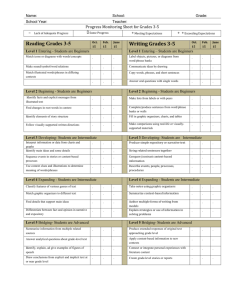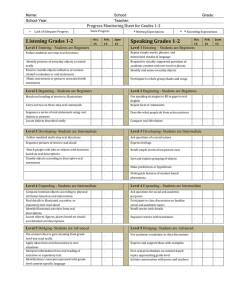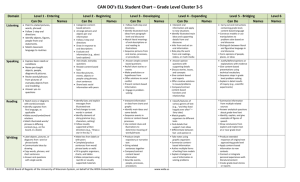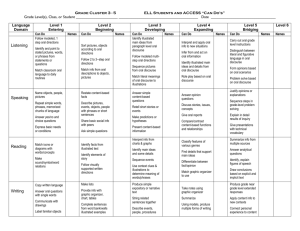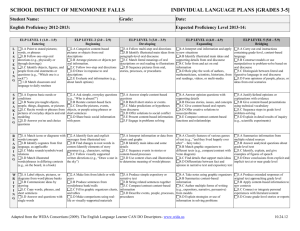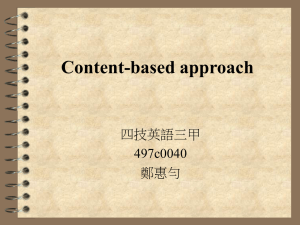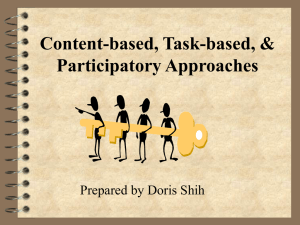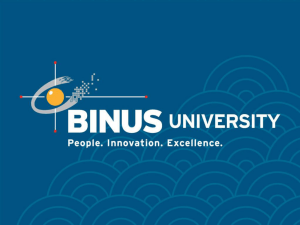Gr 3-5 Listening/Speaking
advertisement
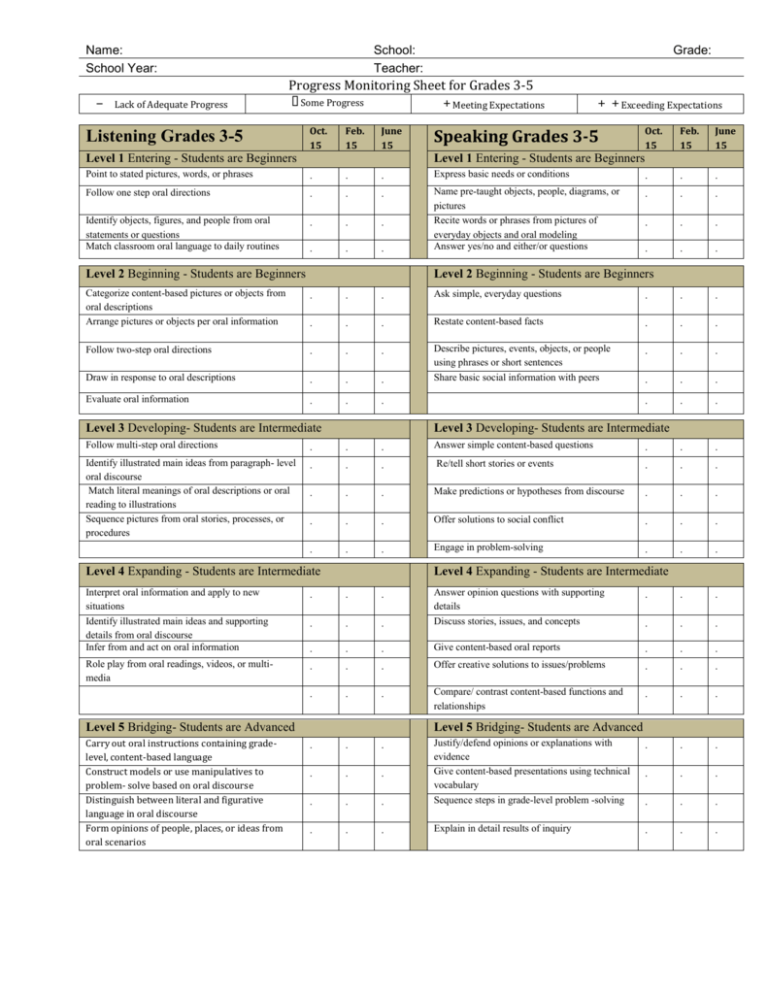
Name: School Year: − Lack of Adequate Progress School: Teacher: Grade: Progress Monitoring Sheet for Grades 3-5 Some Progress + Meeting Expectations + + Exceeding Expectations Oct. 15 Feb. 15 June 15 Point to stated pictures, words, or phrases . . . Express basic needs or conditions Follow one step oral directions . . . Identify objects, figures, and people from oral statements or questions Match classroom oral language to daily routines . . . . . . Name pre-taught objects, people, diagrams, or pictures Recite words or phrases from pictures of everyday objects and oral modeling Answer yes/no and either/or questions Listening Grades 3-5 Level 1 Entering - Students are Beginners Speaking Grades 3-5 Oct. 15 Feb. 15 June 15 . . . . . . . . . . . . Level 1 Entering - Students are Beginners Level 2 Beginning - Students are Beginners Level 2 Beginning - Students are Beginners Categorize content-based pictures or objects from oral descriptions Arrange pictures or objects per oral information . . . Ask simple, everyday questions . . . . . . Restate content-based facts . . . Follow two-step oral directions . . . . . . Draw in response to oral descriptions . . . Describe pictures, events, objects, or people using phrases or short sentences Share basic social information with peers . . . Evaluate oral information . . . . . . Level 3 Developing- Students are Intermediate Level 3 Developing- Students are Intermediate Follow multi-step oral directions . . . Answer simple content-based questions . . . Identify illustrated main ideas from paragraph- level oral discourse Match literal meanings of oral descriptions or oral reading to illustrations Sequence pictures from oral stories, processes, or procedures . . . Re/tell short stories or events . . . . . . Make predictions or hypotheses from discourse . . . . . . Offer solutions to social conflict . . . . . . Engage in problem-solving . . . Level 4 Expanding - Students are Intermediate Level 4 Expanding - Students are Intermediate Interpret oral information and apply to new situations Identify illustrated main ideas and supporting details from oral discourse Infer from and act on oral information . . . . . . . Answer opinion questions with supporting details Discuss stories, issues, and concepts . . . . . . Role play from oral readings, videos, or multimedia . . Give content-based oral reports . . . . . . Offer creative solutions to issues/problems . . . . . . Compare/ contrast content-based functions and relationships . . . . . . . . . . . . . . . Level 5 Bridging- Students are Advanced Carry out oral instructions containing gradelevel, content-based language Construct models or use manipulatives to problem- solve based on oral discourse Distinguish between literal and figurative language in oral discourse Form opinions of people, places, or ideas from oral scenarios Level 5 Bridging- Students are Advanced . . . . . . . . . Justify/defend opinions or explanations with evidence Give content-based presentations using technical vocabulary Sequence steps in grade-level problem -solving . . . Explain in detail results of inquiry
